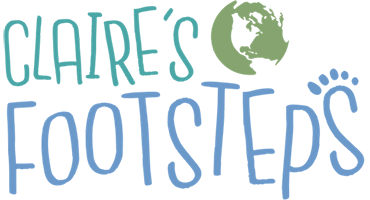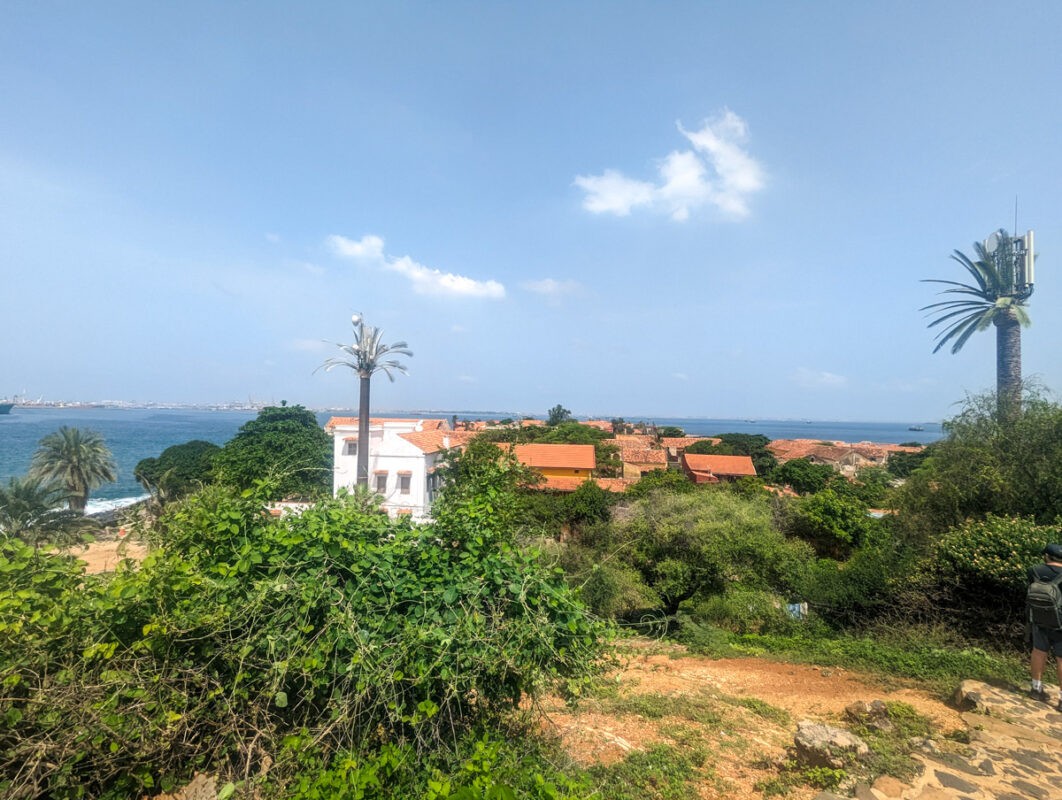Are you wondering is Senegal safe? Read on, as we go through safety in this African nation.
The West African country of Senegal has just started to make moves on the tourist scene.
A once little-visited nation, it’s becoming increasingly well-known for its golden beaches, lush mangroves and action-packed wildlife reserves with several African beasts that you’d usually expect to find in the East.
But as Senegal isn’t that well-visited, it’s understandable to have a few questions about the country: one that tourists often ask is “how safe is Senegal?”.
I recently did a two-week trip to the region, and I’m here to share all my tips!
Is Senegal safe?
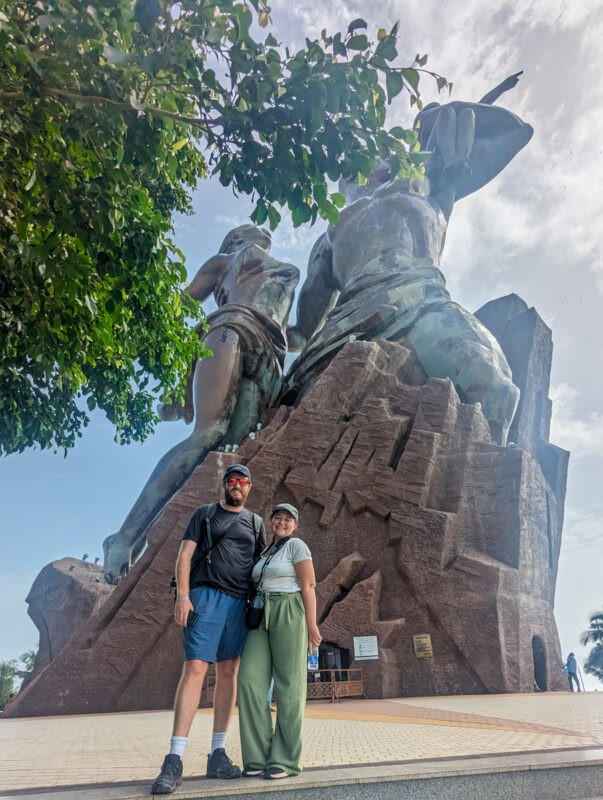
Generally, Senegal is safe. When my partner and I were there for two weeks, we didn’t experience any situations where we felt in danger.
Senegal is one of the most stable democracies in Africa; while political power has transferred three times since independence, it’s always done so peacefully.
However, there are some things to bear in mind.
Crime in Senegal
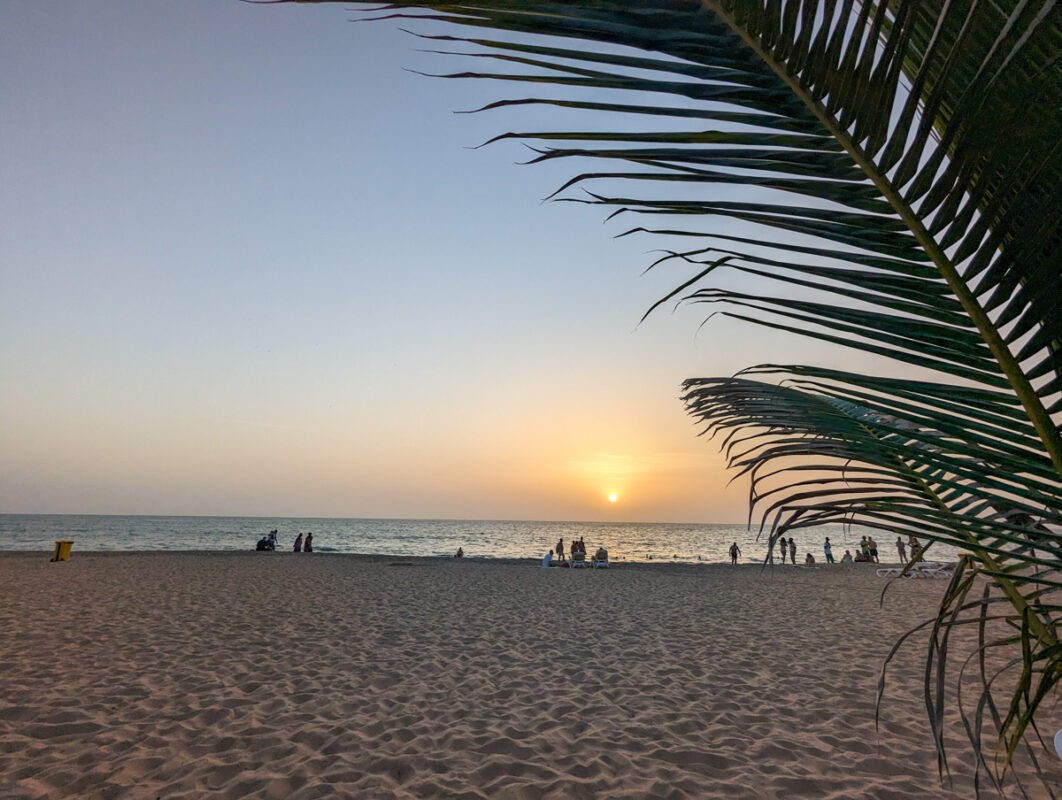
In Dakar, there is some low-level street crime (bag snatching or pickpocketing – violent robberies are rare), especially around Place de l’Indépendence and the general Dakar Plateau area.
We walked around this area one afternoon, and while we didn’t encounter anything that made us feel unsafe, it did feel slightly more hostile than other areas in Dakar that we visited.
For this reason, I wouldn’t recommend staying on the Dakar Plateau – we stayed at Ngor Beach and found it perfectly safe.
Elsewhere in the country, there are low levels of crime. Be a little careful on Goree Island; because the island’s very touristy, pickpocketing could happen. There’s also a small risk of this on the beach destinations in Senegal.
Poverty in Senegal
Poverty is an issue in Senegal, with more than half of its inhabitants living below the poverty line (source: Oxfam). There are few state benefits and many locals take on odd jobs each day.
Due to this, you’ll be approached by people frequently who will offer to sell you items (including souvenirs, food and drinks) or their services as a guide.
I tried to use local services and buy from local vendors when possible, but of course, you can’t purchase from everybody.
Nearly everybody who approached us was pleasant and good to chat with, even if we didn’t end up buying anything.
I did experience one situation when somebody was a little too pushy and put a “gift” into my hand, which I tried to give back to him and he refused.
I ended up putting it onto a bench next to him and leaving it there – while he’d told me it was a gift, I’d heard that accepting a gift can mean that the vendor thinks that they’re entitled to a payment and wanted to avoid this situation.
Political protests in Senegal
There are occasional political protests in Senegal – in fact, there were some a couple of months before our trip.
These ran through the capital and in other parts of the country, including the Casamance region.
Generally, it’s easy to avoid political protests – they’re quite obvious after all – and Senegal’s protests are usually peaceful.
That said, there is a small chance of it turning violent and this violence spreading, so do be careful if you’re in Senegal and something flares up. It’s likely to happen around the 2024 elections.
Be particularly careful if you’re from France.
A guide I had in The Gambia told me about protests in Ziguinchor, in the Southern Casamance region of Senegal, where he had two British travellers and ended up in the heart of a protest.
Protestors were particularly against France’s continuous presence in West Africa, and threatened these two travellers, thinking they were French. They ended up convincing them they were British and the protestors left them alone.
This seems a rare occurrence, and I don’t think it would happen in Dakar (where there are a lot of French tourists living and working), but do be mindful of the possibility!
Road safety in Senegal
While the streets of Dakar can be rather hectic, drivers in the city know what they’re doing, and I never felt in danger when I was a car passenger in the city or country.
I wouldn’t personally drive myself though (although it is possible to!).
Outside of Dakar, the streets are generally single-lane and while there can be traffic, are usually not too hectic.
To get around, you can use local buses or sept-places, converted cars with seven seats. They’re an experience to say the least, and breakdowns do happen fairly often as the vehicles are quite old. But they’re part of the fun of travelling in Senegal!
The bus stations can feel a little sketchy, so if you’re getting a bus or sept-place I’d recommend finding the vehicle quickly and sitting inside it, or hovering outside.
Solo female travellers in Senegal
I didn’t visit Senegal as a solo female traveller – I was with my partner. However, I have travelled solo all over the world and have a good idea of what makes a country suitable or not.
I think solo female travel in Senegal is definitely possible, provided you’re an experienced traveller, but I would recommend the following:
- Stay in larger, secure hotels.
- Don’t walk around after dark, especially in Dakar (take a taxi if you need to get somewhere).
- Book guided excursions with reputable guides.
- If taking public transport, try to sit with or near women.
- Learn as much French as possible.
- Don’t be too open with where you’re staying, what you’re doing and where you’re going.
I employ all of these whenever I travel solo (bar learning French, of course, if it’s not a French-speaking country) and so far, it’s kept me safe.
Check out my YouTube video for more information about safe solo travel.
Terrorism in Senegal
The risk of terror attacks in Senegal is fairly low; I wouldn’t say they’re any greater than Western European destinations, particularly in the tourist areas.
The risk heightens a little closer to the border with Mali, but it’s still fairly low.
Terror attacks have taken place in other West African destinations, notably Côte d’Ivoire in 2016, but this is also a risk throughout Europe. There have not been any large-scale terror attacks in Senegal in recent years.
Food and water hygiene in Senegal
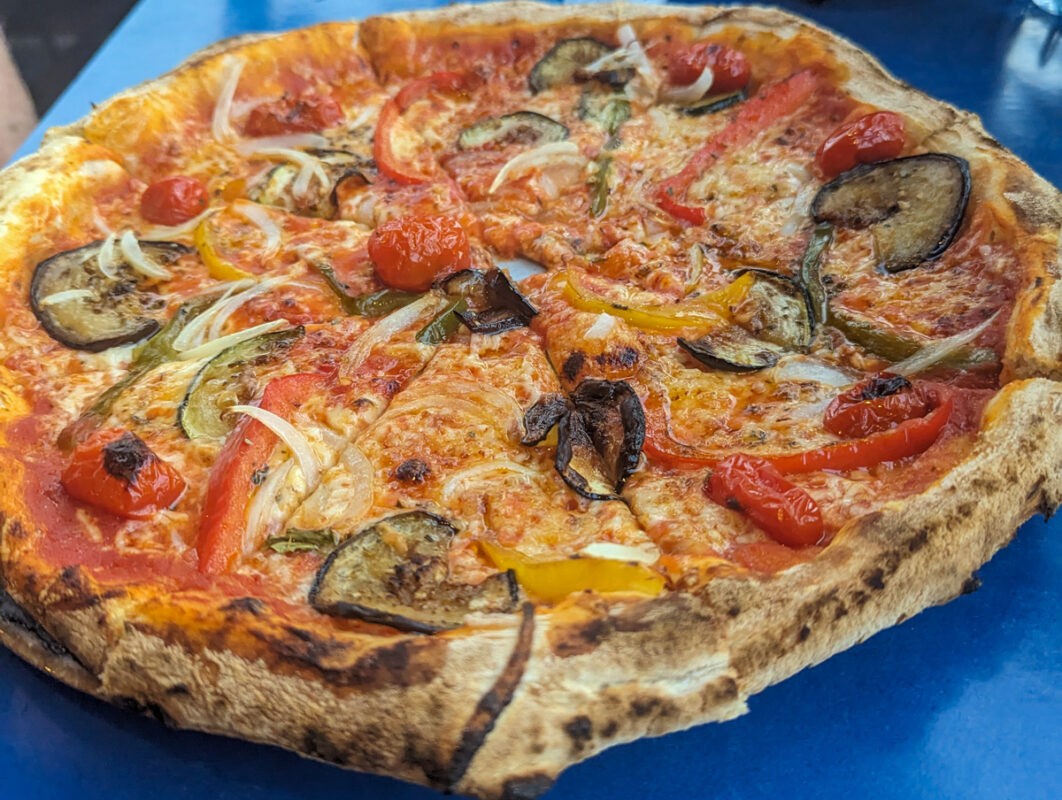
You can’t drink tap water in Senegal and I would recommend being careful of what type of food you eat.
Rather than buying lots of plastic bottles of water, you could use a water filtration bottle like this Water To Go Bottle for drinking water – just make sure you set it up properly (firmly screw the lid and filter on and make sure you activate it – all instructions come with the bottle!) before consuming.
With food, I’d avoid eating salads in most establishments, as sometimes the raw veg is washed in tap water. Personally, I don’t eat meat and I think that helps me to not get sick fairly often; so maybe do be mindful of that too.
Cooked veggies, rice, pasta, bread etc. are plentiful and usually fine to eat; the only thing I’d be mindful of is any food that isn’t cooked fresh.
Pack some Diahorrea capsules (just in case you have a bout of it when getting a bus or going on a tour!).
I only had one day of stomach issues in Senegal and I’m not too sure what caused them!
Malaria in Senegal
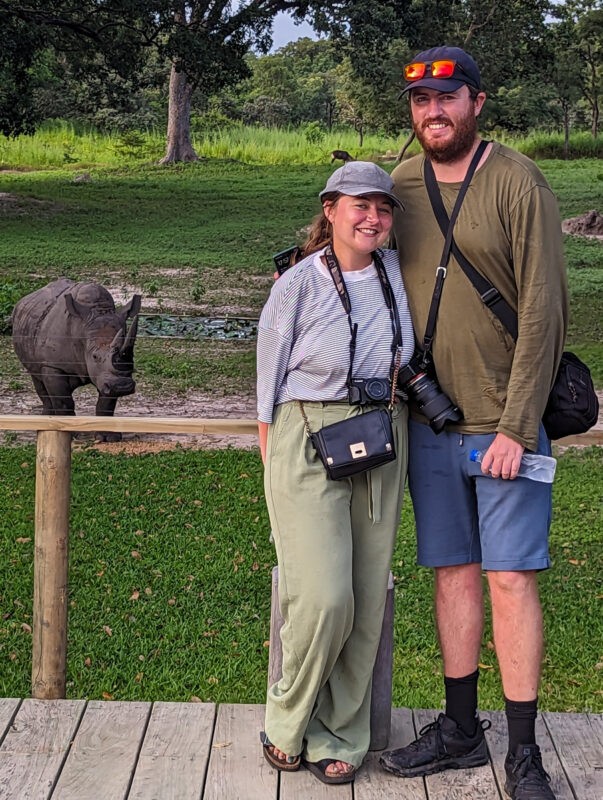
Malaria is a risk in Senegal – especially in the wet season. We visited in October (right at the end of the wet season) and did notice a lot of mosquitoes, although we liberally applied DEET and didn’t get bitten too much. We did, however, see some tourists who were covered in bites!
We wanted to be super-careful in terms of Malaria, however, so we took a full course of atovaquone-proguanil (2 days before arriving in Senegal, during our time there and in The Gambia and a week after leaving) and they worked well.
I actually did have some very severe side effects to Lariam malaria medication in the past (I was hospitalised) and was anxious about taking them again, but I didn’t have many side effects with atovaquone-proguanil (apart from a slight dizzy feeling for the first couple of days and some rather vivid dreams!).
Doxycycline is also an option, but it makes your skin more sensitive (important to be aware of in a country as hot as Senegal!) and you have to take the tablets for four weeks after returning.
I’d recommend speaking to your doctor or pharmacist about the malaria risk and best option for you well ahead of your trip. If you’re UK-based, we used Dr Fox which worked well.
Vaccinations for Senegal
I’d recommend staying up-to-date on your travel meds before visiting Senegal. You might want to consider vaccinations like tetanus, typhoid, hepatitis A, hepatitis B, rabies etc (this list is not conclusive).
The yellow fever vaccination is not mandatory for Senegal, but you may be asked to see it when travelling from Senegal to other countries (such as The Gambia). Senegal is considered a yellow fever risk area so I’d err on the side of caution and get the jab. Once you have it, you’re protected for life!
Speak to a travel doctor well ahead of your trip to see what vaccinations you need – bear in mind that for some vaccinations, you’ll need more than one dose and will have to leave some time in between each.
Don’t forget Travel Insurance!
Don’t visit Senegal without travel insurance!
Travel insurance is very important in Senegal; the healthcare system has a lot of issues but with travel insurance, you’ll covered if you fall sick.
I always use SafetyWing, who are tailored to Digital Nomads but work well for other types of travellers (you can even purchase your insurance when you’re already in the country!) check them out here or use the widget below:
General safety tips for Senegal

Here are some of my best tips to ensure your trip to Senegal is safe and enjoyable!
Stay updated with news from the country
When you arrive in Senegal, make sure that you’re aware of any current political situations, and the chance of protests or unrest. Keeping up with local news and speaking to locals or your accommodation staff can provide valuable insights.
Secure your valuables
If you’re walking around downtown Dakar, be very mindful of your valuables. Carry only what you need and keep cash and phones in a zipped pocket.
Use hotel safes for passports, travel documents, and expensive items.
Be extremely careful when you’re in crowded areas, such as markets or bus stations.
Dress modestly
Senegal is a Muslim-majority country, but the dress code isn’t typically as modest as places like Algeria or Egypt. You’ll see some locals wearing a hijab, but others will wear short sleeves.
So, there isn’t a particular dress code, but I’d still recommend dressing somewhat modestly. I usually wore long, floaty trousers and a T-shirt that covered my shoulders.
Do be exceptionally modest when visiting religious sites, even if you’re not going inside (when we walked around the Mosque of the Divinity in Dakar, I covered my shoulders using a floaty scarf that I was carrying with me).
Emergency contacts
Keep a list of emergency contacts, including your country’s embassy or consulate in Senegal, local emergency services, and your travel insurance provider. Having these contacts easily accessible can be crucial in an emergency.
Stay connected
Letting someone know your travel plans, especially if you’re venturing into less-travelled areas, is a good practice.
I’d recommend getting a local SIM card – either a physical SIM using Orange (full guide here!) or an e-SIM like Airalo.
Be mindful of taking photos
I did find that a lot of locals were very wary of cameras – I never take photos of anyone without their permission but was asked to not take a photo of somebody’s market stall and asked for payment when I took a photo of a sept-place. I’d recommend being very cautious of taking pictures to avoid any kind of confrontational situation.
So, is Senegal safe?
Senegal is a safe country, provided you’re mindful of local customs and cultures and take precautions. Hopefully, this guide has helped you do just that!
